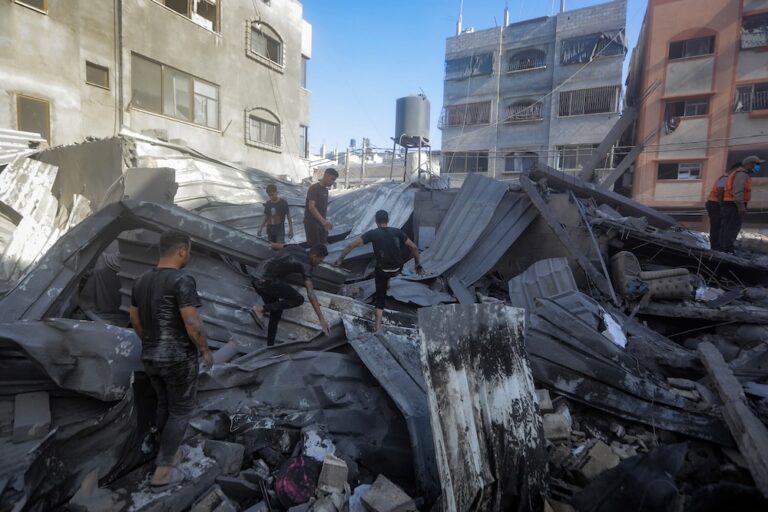The journalist is facing a charge of "holding classified information without authorisation and without intention to harm the security of the state."
UPDATE: Journalist to be charged with possession of classified military documents (IPI, 30 May 2012)
(RSF/IFEX) – 10 November 2011 – After the journalist Anat Kam received a heavy jail sentence at the end of October for supplying Haaretz reporter Uri Blau with copies of classified military documents she had obtained while doing her military service, Reporters Without Borders wrote to attorney general Yehuda Weinstein on 3 November about the case against Blau.
Blau is facing a possible seven-year sentence on a charge of “holding classified information without authorisation and without intention to harm the security of the state” under article 113-c of the criminal code. A hearing was held on 26 May and a verdict is expected soon.
While doing military service from 2005 to 2007, Kam photocopied classified military documents about human rights abuses by the Israel Defence Forces in the Occupied Territories and subsequently handed them to Blau.
Beginning in late 2008, Blau used these documents as the basis for several articles for Haaretz, all of which were approved by the military censors, as expressly required by Israeli law. One of the articles, published in November 2008, said the IDF had violated a Supreme Court decision by carrying out targeted killings of Palestinian militants who could have been arrested.
Extract from the letter:
Our concern about Mr. Blau’s situation is increased by the fact that Ms. Kam, who has been under house arrest since December 2009, was sentenced on 30 October to four and a half years in prison, plus an additional suspended sentence of 18 months in prison. This very severe punishment constitutes a clear warning to all journalists who use confidential documents as a basis for their reporting. It sends a disturbing signal for media freedom in Israel.
At one point or another, all journalists receive and use classified documents. It is the basis of investigative reporting. Countless scandals and revelations of impropriety have come to light thanks to documents obtained without permission. In this case, only one question matters: was the information obtained in this manner of general interest? If it was, then media freedom takes precedence and the justice system must recognize the nature of the journalist’s work and refrain from prosecuting him.
In this case, the documents involved shed a vital light on the way the IDF was operating and, in particular, its targeted killings of Palestinian militants who could have been arrested. This violated a Supreme Court order. The fact that Israel is at war does not deprive the Israeli public of its right to key information that gives it a better understanding of the way its armed forces function.
This is not about endangering the country’s security. It is just a question of exercising one’s right to information about a state entity. Journalists are not above the law and army generals are not, either.
Reporters Without Borders would like to point out that article 113-c of the criminal code, under which Mr. Blau is charged, has never previously been used against a journalist at any time during the past 50 years. Convicting Mr. Blau would have very negative consequences for the image of Israel and would result in its being added to the list of countries that imprison journalists just for doing their work.
We therefore urge you to withdraw the charges against Mr. Blau. Investigative journalists are the cornerstone of transparency, which is essential if a society is to function in a democratic manner. They provide a vital service. Convicting him would do grave harm to the free flow of news and information.


